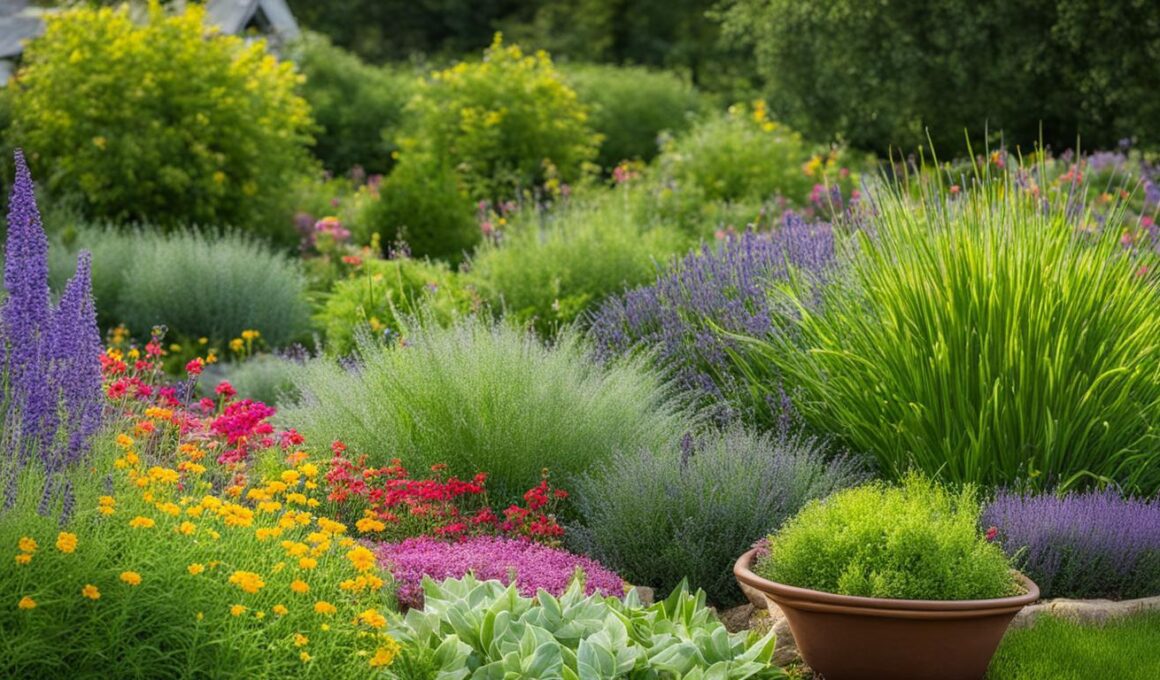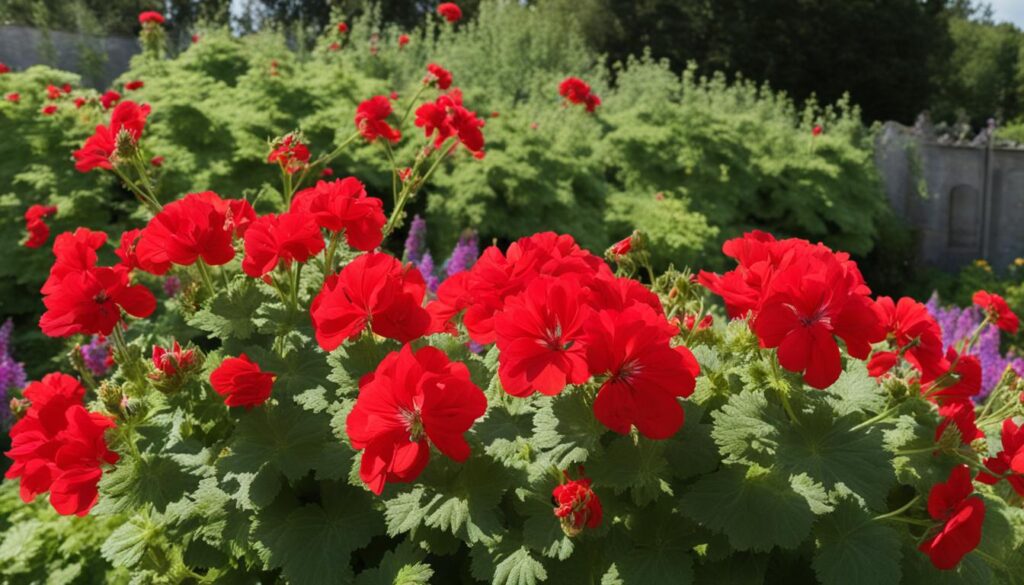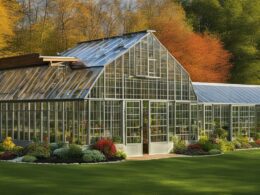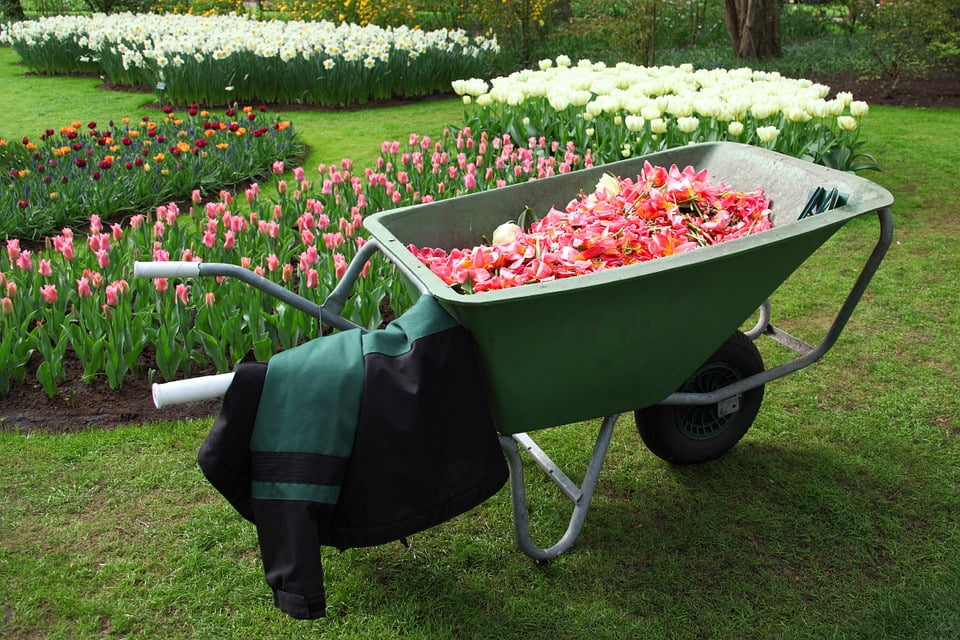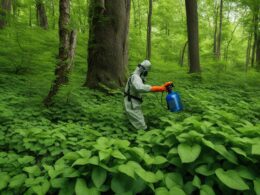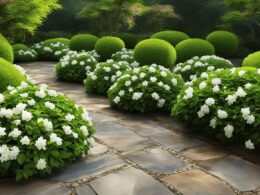Are you tired of bees buzzing around your outdoor spaces and causing a nuisance? Look no further! We have a natural and effective solution for you – plants that repel bees. By incorporating these plants into your garden, you can create a bee-free environment without the need for expensive and bothersome bug sprays or pest control solutions.
Not only can bee stings be painful and troublesome, but they can also pose a danger to those who are allergic or have young children. That’s why it’s essential to take proactive measures to keep bees away.
Some flowers have natural properties that repel bees and wasps, making them great additions to your garden. These plants not only serve as natural bee repellents but also add beauty and vibrancy to your outdoor spaces. If you’re wondering which flowers repel bees, some excellent options include geraniums, mint, basil, cucumbers, marigolds, eucalyptus, wormwood, and pennyroyal.
It’s important to note that blue, violet, and yellow flowers tend to attract bees and wasps the most. So if you want to keep these insects away, it’s best to avoid these colors when selecting plants for your garden.
Stay tuned as we dive into the specific benefits and features of these bee-repelling plants, allowing you to create a garden that is both welcoming to humans and free from pesky stingers.
Geraniums: Effective Bee and Wasp Repellents
Geraniums, especially red geraniums, are highly effective in repelling bees and wasps. These flowers have little to no pollen, which bees and wasps don’t like, and their scent is also unappealing to these insects.
By planting geraniums in your garden, you can deter bees and wasps from hovering around your outdoor spaces while providing a vibrant and colorful addition to your landscape. Geraniums are an excellent natural bug repellent, making them a great choice for families with young children who want to enjoy their time outdoors without the presence of stinging pests.
- Geraniums, especially red geraniums, are highly effective in repelling bees and wasps.
- These flowers have little to no pollen which bees and wasps don’t like.
- The scent of geraniums is unappealing to bees and wasps.
- Planting geraniums in your garden can deter bees and wasps from hovering around your outdoor spaces.
- Geraniums provide a vibrant and colorful addition to your landscape.
- Geraniums are an excellent natural bug repellent.
- They are a great choice for families with young children who want to enjoy their time outdoors without the presence of stinging pests.
Experience the benefits of geraniums as bee and wasp repellents in your garden. The beautiful red blossoms not only enhance the aesthetic appeal but also keep these stinging pests at bay.
Mint: A Natural Bug Repellent for Bees and Wasps
Mint is not only loved by humans for its smell and culinary uses but also works as a natural bug repellent for bees and wasps. The scent of mint, particularly when planted in the shade, is disliked by these stinging pests, making it an effective deterrent.
Planting mint in your herb garden not only keeps pesky stingers at bay but also adds freshness and greenery to your surroundings. You can even use mint leaves to make a refreshing lemonade.
However, it’s important to note that mint can spread rapidly, so planting it in containers or using a barrier to control its growth is recommended.
Incorporating mint into your outdoor spaces can help you create an insect-repellent environment while enjoying the pleasant aroma and taste of this versatile herb. So go ahead, plant some mint, and bid farewell to those unwanted bee and wasp encounters!
Other Plants and Tips to Repel Bees and Wasps
While there are limited options for plants that specifically repel bees and wasps, there are some other plants and tips you can try to minimize their presence in your outdoor spaces.
Basil, with its aromatic leaves, can keep bees away and also repel other pests like fleas and houseflies. Cucumbers, with their acidic peels, are useful for deterring wasps and bees. Marigolds, although not deterring honeybees, can help eliminate wasps. Eucalyptus, with its aromatic leaves, repels bees and wasps. Wormwood, used in some wasp repellents, has a pungent smell that keeps bees, wasps, mosquitoes, and fleas away. Lastly, pennyroyal, a small-sized plant similar to mint, can be placed in pots or backyard areas to keep stinging pests at bay.
Remember to avoid planting blue, violet, and yellow flowers, as they attract bees and wasps. Additionally, keep in mind the shape of the flowers, as bees and wasps find it challenging to extract nectar from trumpet-shaped flowers. By incorporating these plants and taking these tips into consideration, you can create a garden that repels bees and wasps, ensuring a safer and more enjoyable outdoor experience.
Will Planting Begonias Help Keep Bees Away?
Planting begonias in gardens may deter rabbits and begonias in gardens, but there is no evidence to suggest that they can keep bees away. Bees are essential pollinators and play a crucial role in our ecosystem. It’s important to find alternative methods to coexist with bees rather than repel them.





